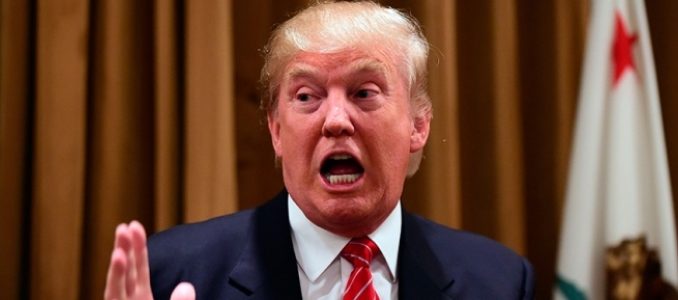
U.S. President-elect Donald Trump has vowed to rip up the Iranian nuclear agreement on Day 1, and reimpose sanctions on Iran. The move could potentially have far-reaching consequences for the oil markets.
The 2015 deal between the P5+1 nations (U.S., France, the UK, Russia, China and Germany) and Iran was one of the signature achievements of the Obama administration, one that produced multiple benefits. First, it ratcheted down tensions between Iran and the U.S., a relationship that had become so hostile in the preceding years that the drumbeats of war were audible in Washington. Second, the agreement put restraints on Iran’s nuclear program. From Iran’s perspective, the deal also paved the way for a return to international markets, and allowed them to ramp up oil production and exports. All told, Iranian oil exports had dropped from 2.4 million barrels per day (mb/d) in 2011 to just 1 mb/d by 2013. Iran has since restored much of that lost output.
However, the historic thaw in relations became a lot more complicated with the election of Donald Trump, who has vowed to take a hardline with Tehran. It is not clear that the mercurial President-elect will follow through on his threat (or a long list of other campaign promises), or back off once he sits in the Oval Office and takes a harder look at the agreement.
On the other hand, as a new report from Columbia University’s Center on Global Energy Policy details, the restoration of sanctions might have a more nuanced outcome. It would likely be met with dismay across the globe, including from U.S. allies that worked hard to reach an accord. Some countries, including American allies in Europe and Asia could reject the Trump administration’s demands. As such, oil flows would be rerouted from countries that comply with Washington’s demands and put sanctions back in place to countries that refuse to comply. If a large oil purchaser, such as China, decides not to cooperate with President Trump, the U.S. effort to contain Iran will likely fail.
The Columbia University report also offers some interesting theories on Iran’s calculus regarding cooperation with OPEC if the U.S. tears up the nuclear accord. On the one hand, Iran might decide to cooperate with OPEC in order to boost oil prices now, thus making it more painful for the international community to restore sanctions because it would have the effect of further pushing up oil prices. The flip side is that Iran might try to produce as much as possible today for fear of seeing output curtailed by international sanctions in the future.
For oil prices, the effect of a more confrontational approach would be bullish, to say the least. The potential for supply outages would rise. But the geopolitical risk premium would arguably be more important. Tearing up the nuclear accord would leave moderate Iranian officials in the lurch, many of whom took a great deal of risk to support negotiations with the U.S. Hardliners would thus be strengthened, and conflict between Washington and Tehran would be hard to undo.
Of course, for many in the Trump administration, there is plenty of upside from this. Donald Trump has tried to curry domestic political support by taking an aggressive position towards Iran. Meanwhile, several rumored appointments in the Trump administration have a long history of advocating for a hostile approach towards Iran.
Congressman Mike Pompeo has been appointed to lead the CIA promised to “roll back” the nuclear deal as recently as last week. The hawkish National Security Advisor Retired Army Lt. General Michael Flynn is also a critic of the deal. Most important of all is probably the potential selection of John Bolton to lead the State Department. Bolton is one of the most extreme critics of the Iranian nuclear deal and Iran in general, and he openly called for regime change in Tehran just a few days ago. Should he be selected to lead the State Department, Trump will likely have telegraphed his intentions to scrap the landmark deal.
Then there are the top executives from the oil industry that have the President-elect’s ear. They would stand to benefit from the spike in oil prices if Iranian oil was forced out of the market. The Columbia University report estimates that U.S. shale would see an increase in output of 300,000 to 900,000 barrels per day in the next few years if oil prices rise to $60 per barrel. It is not hard to imagine oil prices rising that high if the U.S. openly tries to isolate OPEC’s third largest producer.
Of course, when dealing with Donald Trump, it is impossible to make accurate predictions. We may have to wait until January to find out what he will do.
By Nick Cunningham of Oilprice.com
